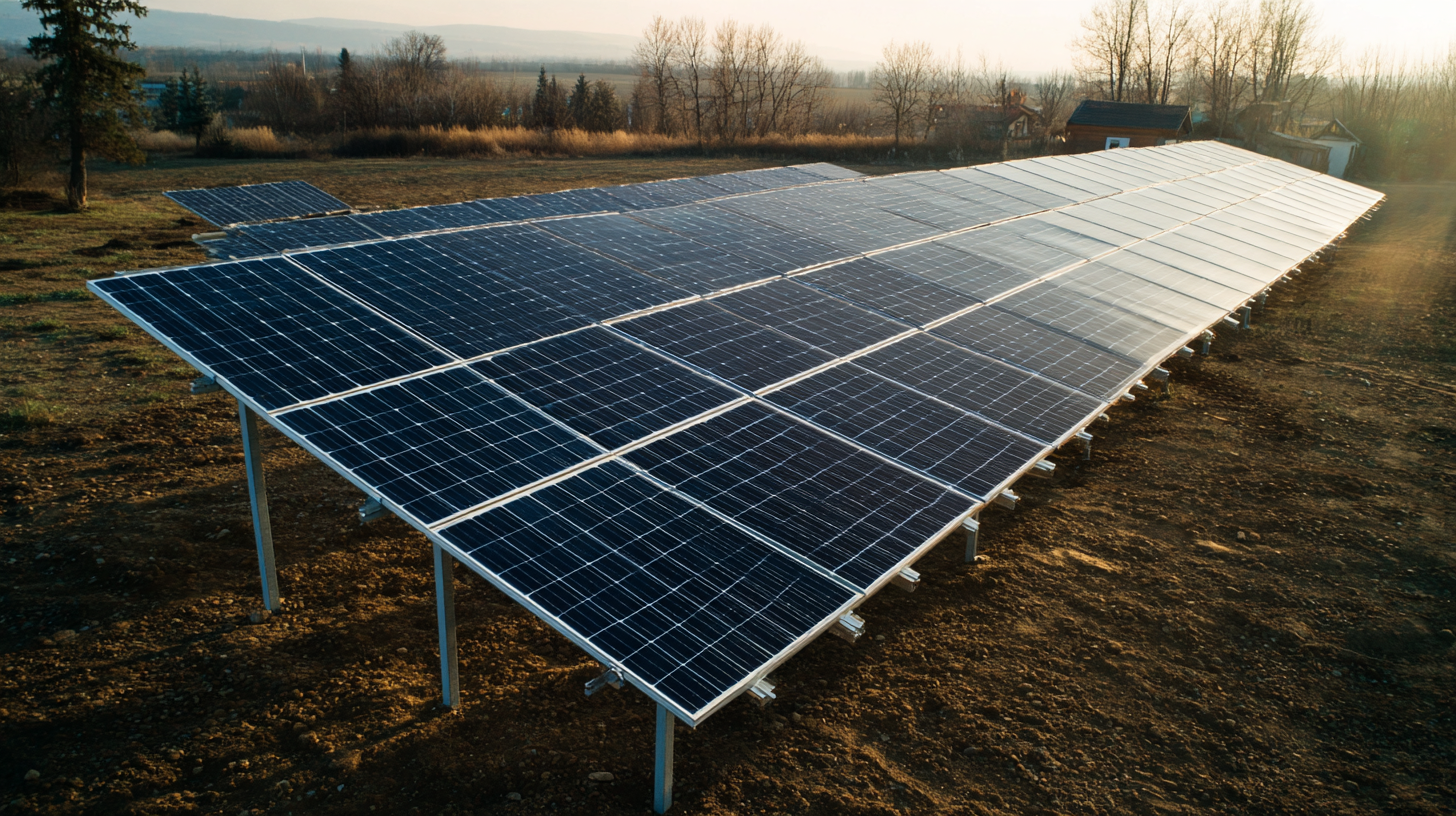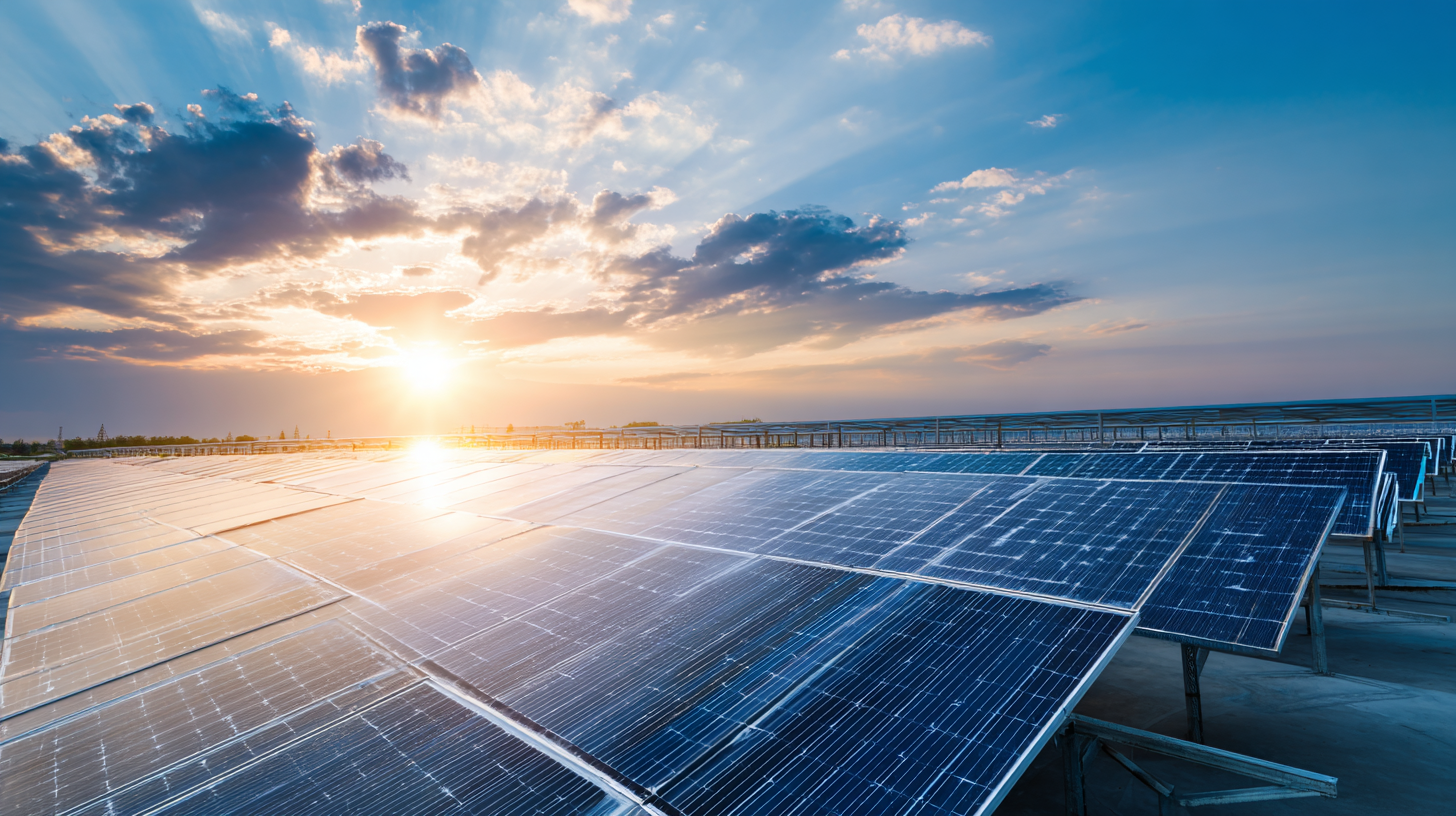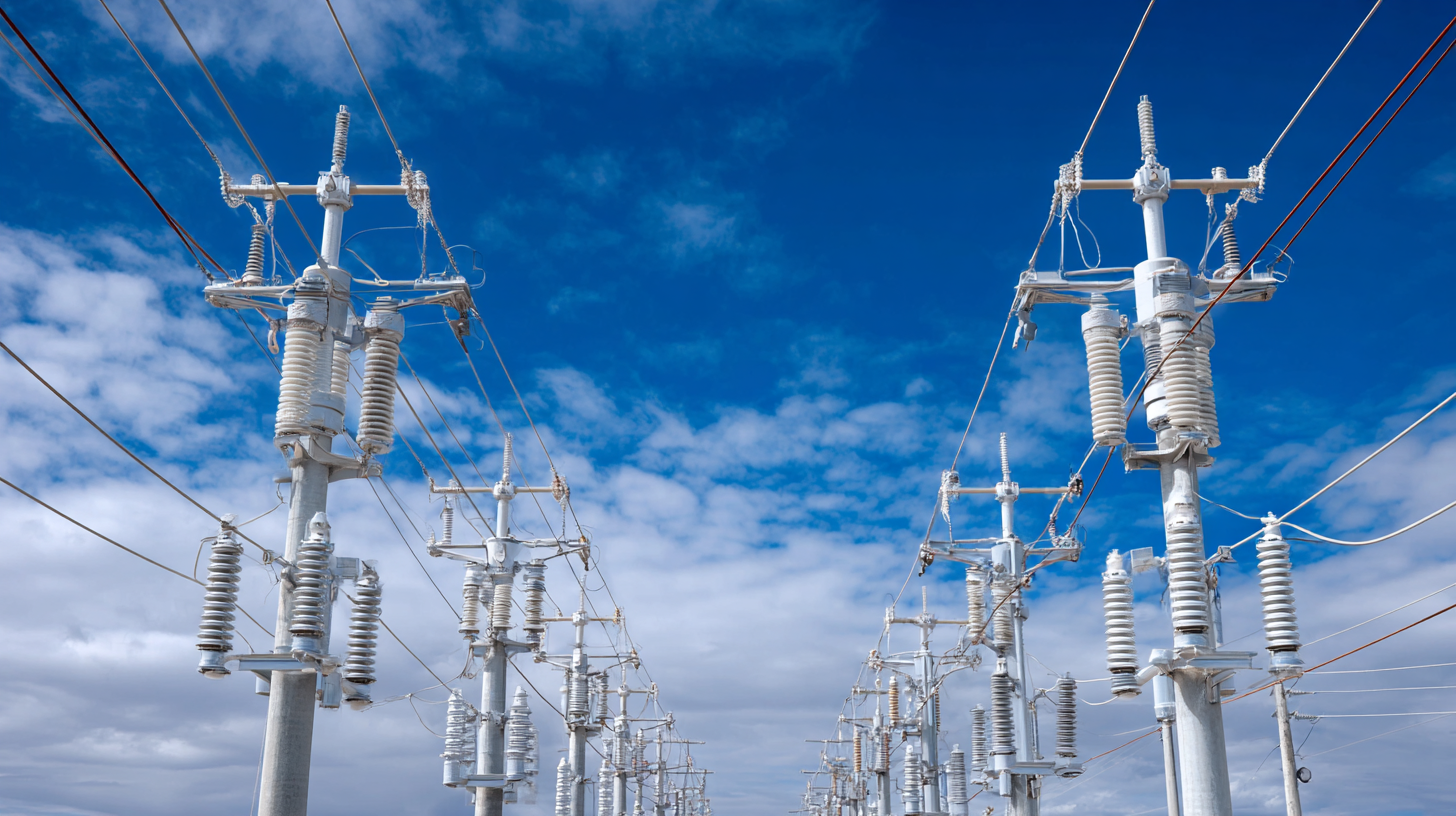Tel : 94870 36000, 94860 36000, 94890 36000
Unlocking Success: Essential Tips for Sourcing Premium Best Home Solar Suppliers Globally
In the quest for sustainable energy solutions, the demand for Home Solar systems has surged dramatically, with research from the International Energy Agency projecting a 30% increase in global solar capacity by 2025. As homeowners seek to maximize their investments in renewable energy, sourcing from premium Home Solar suppliers becomes essential for ensuring quality and performance. However, the advantages of effective after-sales service and manageable maintenance costs are often overlooked. In fact, a report from the Solar Energy Industries Association indicates that consumers who engage with suppliers offering robust support and lower repair expenses experience a 25% increase in overall satisfaction with their Home Solar investments. Thus, navigating the landscape of Home Solar suppliers with a keen focus on service and cost-efficiency is pivotal for unlocking long-term success and sustainability in residential solar energy utilization.

Table of Contents
[Hide]
Identifying Your Solar Needs: A Guide to Assessing Requirements Before Sourcing
When considering the transition to solar energy, it’s essential to first assess your unique solar needs. A comprehensive study by the National Renewable Energy Laboratory (NREL) indicates that understanding local climate conditions, energy consumption patterns, and available roof space can significantly optimize the efficiency of a solar energy system. For instance, homeowners in sunnier regions can often benefit from higher energy yields, while those in less sunny climates may need to consider larger systems to meet their energy demands.

Before sourcing from global suppliers, determining your energy requirements is crucial. According to the U.S. Energy Information Administration, the average American household uses about 877 kWh per month. By evaluating your monthly energy consumption, you can better estimate the appropriate system size. Additionally, features such as battery storage should be examined, especially as a report from Wood Mackenzie highlights that the residential storage market is projected to grow significantly, reflecting a rising demand for energy independence and reliability. This initial assessment lays the groundwork for identifying reputable suppliers who can provide the best solutions tailored to your specific needs.
Key Characteristics of Premium Solar Suppliers: What to Look For Globally
When sourcing premium home solar suppliers globally, it's crucial to identify key characteristics that distinguish the best in the industry. Leading suppliers typically exhibit a strong track record of innovation, high-quality products, and excellent customer service. Look for companies that have obtained reputable certifications and adhere to international energy guidelines. A focus on sustainability is also essential; suppliers that actively participate in the renewable energy market and contribute to carbon credit systems demonstrate their commitment to environmental responsibility.
Additionally, it is important to consider the geographical positioning of suppliers. Regions that are known for their advancements in renewable energy, such as China, should be on your radar. China's rapid expansion of renewable energy capacity has not only positioned it as a leader in solar manufacturing but also provides invaluable insights into emerging technologies and competitive pricing. When evaluating potential suppliers, take into account their ability to offer scalable solutions, local support, and adaptability to different market conditions, ensuring a robust partnership in your solar energy journey.
Evaluating Supply Chains: How to Ensure Quality and Reliability in Solar Products
When sourcing premium solar suppliers globally, evaluating the supply chain is crucial to ensure the quality and reliability of solar products. The first step in this evaluation is to conduct thorough research on the suppliers' production processes. Understanding how and where the products are manufactured will provide insights into their standards of quality. Look for manufacturers that utilize advanced technology and adhere to international quality certifications, such as ISO standards. This not only ensures that the products meet safety and performance requirements but also reflects the supplier’s commitment to quality.
Another important aspect is to assess the supplier's stability and reliability. This can be gauged by examining their financial health, customer reviews, and history of timely deliveries. It’s helpful to request references from previous clients and to engage with them to get a clear picture of the supplier’s performance. Furthermore, understanding the logistics and transportation aspects is essential, as delays in shipping can affect project timelines. By prioritizing these factors in your evaluation, you can mitigate risks and build a robust supply chain that supports the long-term success of your solar initiatives.
The Importance of Certifications: Verifying Supplier Credibility and Standards
When sourcing premium home solar suppliers globally, the importance of certifications cannot be overstated. Certifications serve as a reliable indicator of a supplier's credibility and adherence to industry standards. They assure consumers that the products they are purchasing meet specific safety and quality benchmarks, which is vital in the renewable energy sector. Not all suppliers prioritize compliance, and navigating this landscape requires diligence. Therefore, checking for credible certifications such as ISO, IEC, or ENERGY STAR can help filter out unreliable vendors and ensure that you are working with reputable manufacturers.
Moreover, certifications often dictate the level of innovation and sustainability within a supplier's products. Suppliers with recognized certifications are more likely to implement rigorous testing procedures and ethical manufacturing practices, ensuring that their solar solutions not only perform reliably but also contribute positively to environmental goals. By prioritizing certified suppliers, consumers can invest in solar technologies that promise efficiency and longevity, ultimately leading to greater long-term savings and environmental impact. As the market for solar energy continues to expand, understanding the significance of these certifications will empower buyers to make informed decisions that align with their energy needs and ethical values.

Building Long-Term Partnerships: Strategies for Collaborating with Solar Suppliers
When it comes to building long-term partnerships with solar suppliers, it's essential to establish trust and mutual benefit. One effective strategy is to engage in open communication about expectations and goals. Regular meetings to discuss performance, market trends, and innovation opportunities can help strengthen these relationships. This collaborative approach not only fosters transparency but also encourages feedback, creating an environment where both parties can thrive.
Another key tip is to invest time in understanding the supplier's capabilities and limitations. This insight can lead to more tailored collaborations, ensuring both sides can leverage their strengths. Additionally, consider exploring shared ventures such as co-marketing or joint product development. Such initiatives can create a win-win scenario, enhancing product offerings and expanding market reach for both you and your suppliers.
Lastly, it is beneficial to conduct periodic evaluations of the partnership. This can involve assessing alignment on core values and assessing performance metrics. By proactively addressing any concerns and celebrating successes, you can maintain a healthy, evolving partnership that stands the test of time in the competitive solar industry.
Unlocking Success: Essential Tips for Sourcing Premium Best Home Solar Suppliers Globally
| Supplier Region | Supplier Type | Product Range | Average Lead Time (Days) | Quality Certification | Partnership Potential |
|---|---|---|---|---|---|
| North America | Manufacturer | Solar Panels, Inverters | 30 | ISO 9001 | High |
| Europe | Wholesaler | Solar Components | 25 | IEC 61215 | Medium |
| Asia | Distributor | Solar Batteries, Inverters | 45 | UL 1741 | Low |
| Australia | Installer | Complete Solar Systems | 20 | Clean Energy Council | High |
| South America | Retailer | Solar Panels | 35 | TUV Rheinland | Medium |

